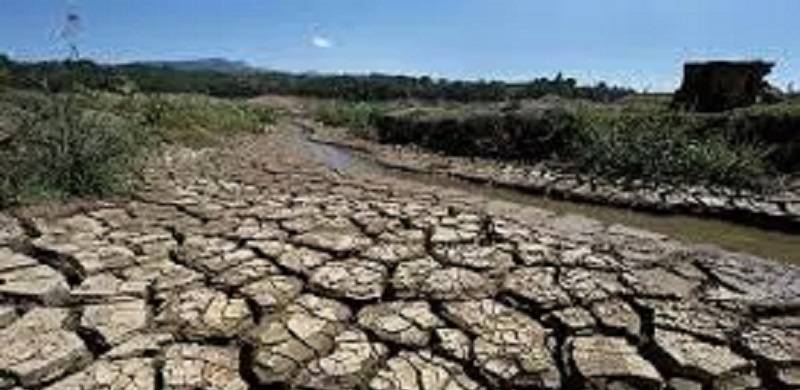
It is reasonably well-established that climate change is a cause of a warmer world and an increase in global temperatures every single moment. This is caused by the carbon monoxide emissions into our atmosphere which strengthen the greenhouse effect. That damages the Ozone layer-- protection shield around our globe against the ultraviolet rays penetration into the atmosphere.
The world leadership gathering in Paris has vowed to raise awareness and take action to minimize the impact of global warming because our next generations have the right to live in a world with a control mechanism to minimize global warming.
Climate change is, naturally, a major problem for Pakistan as well, because its population as a whole is either directly or indirectly affected by the climate crisis. And this is the case in every corner of Pakistan. The impact ranges from melting glaciers to an impact on microscopic lifeforms. As such, the climate crisis in Pakistan is not only a threat to the environment but also to the entire existence of our population – i.e. the living and nonliving components of our surroundings.
The melting of glaciers is already manifesting itself through flash floods that come almost every year in the northern areas of Pakistan. It directly affects the lives of the people living in that area and has a major impact on the economy of the whole country: contributing to food shortages, hurting exports, increase in diseases, destruction of infrastructure and escalation of stress and anxiety. An example of the health-related impacts are the effect on children of malnutrition, cholera, malaria, tuberculosis and mental health.
A climate-related narrative has already been built in the country to an extent, but if we are not ready to declare a climate emergency on a state level and in a serious way, we should be ready to face the worst consequences.
Sustainable architecture, green energy, investing in renewable energies and divesting from fossils fuels are a few things that Pakistan should focus on. Pakistan's government has already started the climate vows commitment in words – both nationally and globally. But now its time for them to implement all the policies that the world has agreed upon.
The government of Pakistan has already invested in forestation campaigns like the Billion Tree Tsunami, which is laudable. Seminars and campaigns regarding the climate crisis should be conducted so that civil society is aware. As such, declaring a climate emergency appears to be the only way to safeguard our population, economy and future.
The world leadership gathering in Paris has vowed to raise awareness and take action to minimize the impact of global warming because our next generations have the right to live in a world with a control mechanism to minimize global warming.
Climate change is, naturally, a major problem for Pakistan as well, because its population as a whole is either directly or indirectly affected by the climate crisis. And this is the case in every corner of Pakistan. The impact ranges from melting glaciers to an impact on microscopic lifeforms. As such, the climate crisis in Pakistan is not only a threat to the environment but also to the entire existence of our population – i.e. the living and nonliving components of our surroundings.
The melting of glaciers is already manifesting itself through flash floods that come almost every year in the northern areas of Pakistan. It directly affects the lives of the people living in that area and has a major impact on the economy of the whole country: contributing to food shortages, hurting exports, increase in diseases, destruction of infrastructure and escalation of stress and anxiety. An example of the health-related impacts are the effect on children of malnutrition, cholera, malaria, tuberculosis and mental health.
A climate-related narrative has already been built in the country to an extent, but if we are not ready to declare a climate emergency on a state level and in a serious way, we should be ready to face the worst consequences.
Sustainable architecture, green energy, investing in renewable energies and divesting from fossils fuels are a few things that Pakistan should focus on. Pakistan's government has already started the climate vows commitment in words – both nationally and globally. But now its time for them to implement all the policies that the world has agreed upon.
The government of Pakistan has already invested in forestation campaigns like the Billion Tree Tsunami, which is laudable. Seminars and campaigns regarding the climate crisis should be conducted so that civil society is aware. As such, declaring a climate emergency appears to be the only way to safeguard our population, economy and future.
